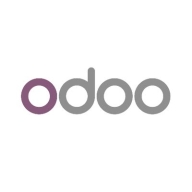

Oracle CRM and Odoo compete in the CRM software category. Odoo appears to have the advantage for small to medium-sized businesses due to its affordability and customization options, while Oracle CRM is well-suited for large enterprises with complex needs.
Features: Oracle CRM offers a robust product catalog, integration with major ERP systems, and advanced analytics. It provides industry-specific solutions for sectors such as finance and healthcare, making it a comprehensive option for large enterprises. Odoo is highly flexible and modular, offering a wide range of integrated applications. Its open-source nature allows vast customization, making it ideal for businesses seeking tailored solutions.
Room for Improvement: Oracle CRM needs to improve user interaction, mobile capabilities, and third-party application integration. Performance and support speed are also critical areas for enhancement. Odoo requires better reporting, improved integration capabilities, and more advanced mobile applications. While Oracle focuses on cloud enhancements, Odoo could improve its scalability and streamline the upgrade process for larger enterprises.
Ease of Deployment and Customer Service: Oracle CRM supports deployment across private, public, and hybrid clouds, as well as on-premises setups, but experiences slow technical support. Odoo offers similar deployment flexibility and is more cost-effective for small businesses, with generally efficient support. However, both face challenges with response times and support quality.
Pricing and ROI: Oracle CRM targets large enterprises with high budgets, and its complex licensing can lead to additional costs, although users report favorable ROI. Odoo's affordability and flexible pricing make it a cost-effective choice for small to mid-sized businesses. With a lower entry price and scalability potential, it provides value through extensive customization at a lower overall cost.
Currently, I manage those tasks independently, which is a significant cost-saving measure for my small business.
Technical support from Odoo is available and eager to help.
I rate the scalability of Odoo as eight to nine out of ten.
Stability is very important because any software that supports your business must be available consistently.
We haven't really had any technical challenges with Oracle CRM.
Regarding the stability of Oracle CRM, nobody is facing any major issues in terms of infrastructure problems whether it is Oracle CRM, Salesforce, or SAP CRM; they are all the same, especially with cloud-based SaaS.
Odoo's documentation needs improvement, as there are areas that are not well-documented.
It could be improved with better quality for response time and empathy with the client's operations.
It's already integrated into our environment, so moving to something else will require a massive investment and change in strategy that we as an organization are not prepared to embark on just yet.
The AI feature needs improvement.
The pricing for Odoo is affordable, with the solution being significantly cheaper than its competitors like SAP, Microsoft, and Oracle.
The CRM and sales tools are highly effective, with customizable proposal templates aiding client interactions.
The biggest advantage of Oracle CRM for me is the process coverage, ease of use, the UI, and obviously a good amount of analytics; these are the few strengths and seamless integration with any platform.
It is very much tied closely with sales forecasting, growth, the reporting and decision-making process.
The solution serves end-to-end customer relationship management which includes sales cloud, e-commerce cloud, and marketing cloud.
| Product | Market Share (%) |
|---|---|
| Odoo | 2.2% |
| Oracle CRM | 1.4% |
| Other | 96.4% |


| Company Size | Count |
|---|---|
| Small Business | 28 |
| Midsize Enterprise | 5 |
| Company Size | Count |
|---|---|
| Small Business | 17 |
| Midsize Enterprise | 2 |
| Large Enterprise | 22 |
Odoo is a suite of open source business apps that cover all your company needs: CRM, eCommerce, accounting, inventory, point of sale, project management, etc. Odoo's unique value proposition is to be at the same time very easy to use and fully integrated.
On demand CRM with contextual intelligence, adaptive business planning, and analytics. Supports cloud integration with Outlook and mobile devices, as well as sales and marketing applications. Multi-tenancy or single-tenancy options available.
We monitor all CRM reviews to prevent fraudulent reviews and keep review quality high. We do not post reviews by company employees or direct competitors. We validate each review for authenticity via cross-reference with LinkedIn, and personal follow-up with the reviewer when necessary.